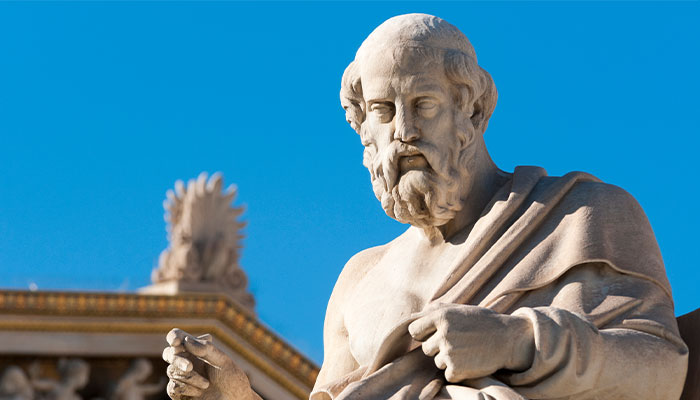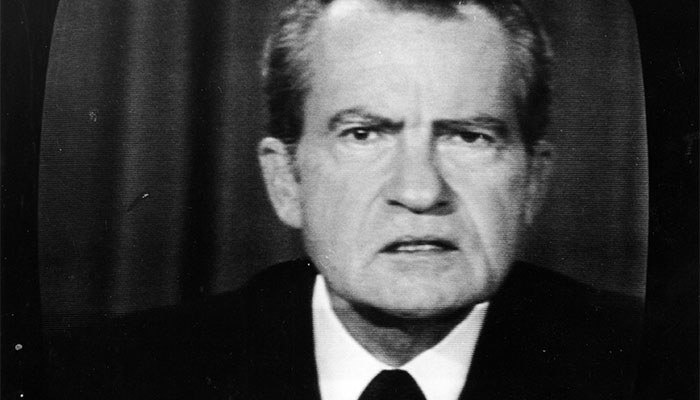Imagine you hold a prominent public position and discover that your partner may have been engaging in corrupt behaviour. Should you confront him/her and find out the truth? Or should you turn a blind eye and hope that whatever they have been doing remains a secret?

At a time when public trust in government is at a historic low, it is worth asking: why do we lie? Asking this question raises another: why tell the truth? These questions have exercised philosophers over the ages, but they assume a particular urgency today.
Although citizens often expect politicians to lie, it is disconcerting that many of us lie to our doctors. An American study found that 60 to 80 per cent of patients admitted they have withheld information relevant to their health, with more than one in five concealing unhealthy diets or lack of exercise. When asked why, their most common response was that they did not want to be judged, and wanted to avoid embarrassment.
These are 'negative' reasons why we might lie: to avoid judgment or censure in order to preserve our self-image or reputation. More common are positive reasons to lie: to gain advantage for oneself without suffering negative consequences.
Most would agree that lying in order to cheat someone of their savings is morally wrong; but lying about someone's haircut in order to spare their feelings seems morally benign.
There are strategic reasons to lie: to deceive others in such a way that they contribute to achieving one's goals, or enable a project to succeed.
There are lies that we might justify via a greater good, what Plato called a 'noble lie' or grounding myth, which he claimed was necessary for the stability of democracy. Plato's example was the divine origin of ancient Greek citizens' different political roles; today's political 'noble lies' seem anything but (for example, the American neoconservatives' – influenced by Platonist political philosopher Leo Strauss – use of dubious evidence to justify the war in Iraq).
There are familiar 'white lies' that are deemed morally justifiable in order to avoid unnecessary hurt or discomfort.
Most would agree that lying in order to cheat someone of their savings is morally wrong; but lying about someone's haircut in order to spare their feelings seems morally benign (see the wonderful 'Hair is Everything' scene in the UK comedy series Fleabag). There are also those perverse types, Augustine's 'pure liars', who delight in deception for its own sake.
Is lying ever OK?
Not all philosophers agree on the morality of lying. Friedrich Nietzsche claimed that, from the viewpoint of power and human flourishing, the capacity for artful deception is an advantage. Enlightenment philosopher Immanuel Kant argued that lying is always morally wrong; as rational beings, we exercise our moral freedom by deciding according to reason how we should act.

Greater good: Plato claimed a 'noble lie' was necessary for the stability of democracy.
For Kant, this means the rule guiding my action should be universally applicable (a 'categorical imperative'). The liar acts according to the maxim that it is permissible to lie, if to my advantage, when I am unlikely to be caught.
If everyone applied this maxim universally, however, chaos would ensue: the basis of our social and moral acts – trust in the sincerity or honesty of others – would collapse. In order for my lie to succeed, others have to assume I am telling the truth. Lying undermines the conditions of moral agency, so it can never be morally permissible.
Once lying becomes a settled character trait, what Aristotelian virtue ethicists call a 'vice', it becomes 'second nature' and difficult to budge.
Kant's rule-based approach (what philosophers call 'deontology') contrasts with utilitarian philosophers (or 'consequentialists'), who define the good by what maximises wellbeing and minimises suffering.
For utilitarians, it is permissible to lie if the consequences of telling the truth would result in more harm than good. Kant claimed that it would be wrong to lie to a murderer knocking at your door, asking if his intended victim is inside; for a utilitarian, the awful consequences of telling the murderer the truth make lying the right thing to do.
The liar versus the bullshitter
How can we discern the consequences of our actions, given the difficulty of predicting complex outcomes? What happens to my moral integrity if I habitually lie about small matters, or always find reasons why telling the truth is inconvenient? Once lying becomes a settled character trait, what Aristotelian virtue ethicists call a 'vice', it becomes 'second nature' and difficult to budge.

Corrosive forces: There is a view that disgraced former US President Richard Nixon was a liar, while Donald Trump is a bullshitter.
Someone may decide it is permissible to lie to their partner about having an affair, since what they don't know can't hurt them; but the pain of discovering this deception, along with the denial of one's partner's moral agency, can destroy trust, the foundation of any relationship.
If lying undermines the trust essential for social co-operation, and thereby threatens the healthy functioning of our institutions, where does that leave us today?
Princeton philosopher Harry Frankfurt has claimed that lying does not threaten truth as much as the cultural prevalence of 'bullshit'. Submitting this familiar term to philosophical analysis, Frankfurt distinguished the liar, who seeks to conceal the truth to gain advantage, from the bullshitter, who seeks to persuade others without regard for truth or falsity.
Whereas the liar tries to present lies as truth, the bullshitter scoffs at both and only wants to manipulate. On this view, Richard Nixon was a liar, whereas Donald Trump is a bullshitter. Frankfurt claimed that bullshit is a corrosive force in our culture, corrupting social institutions, public opinion, even democratic politics – a process fuelled by the circulation of misinformation and disinformation online (inadvertent versus deliberate distortions or denials of truthful information or reliable knowledge).
If Frankfurt is right, perhaps we should focus more on combatting the bullshit in our midst, and its more politically refined cousin 'spin', or the dark art of making bullshit palatable, while endeavouring to restore trust in our ailing democratic culture.







